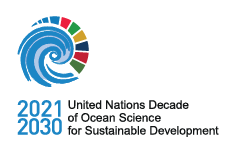Apr 25, 2024 | 6:00AM - 7:00AM | PST | Online
April 2024 Webinar: Planning for climate resilience in fisheries

April Presentations
Presentation 1: From exploring theory to providing operational help: the development of the SNAPP Climate Resilient Fisheries Planning Tool
Climate change is dramatically challenging the assumption of a stable marine system; an assumption that is embedded into the tools that we use to manage fisheries. How do we ensure that fisheries and the management systems remain resilient in the face of this change? Hoping to make a difference, a group of researchers came together to explore the conceptual foundation of climate resilience in fisheries. We did what researchers always do: published some great insightful papers! However, the parading of our insights in front of other academics will not bring about meaningful systemic transformation. Thus, the team developed the SNAPP Climate Resilient Fisheries Planning Tool; a six step tool for stakeholders and communities to identify actions for building greater resilience in fisheries to climate change. This talk will highlight the key steps in the process.
For more information:
Science for Nature and People Partnership Climate Resilient Fisheries Working Group: https://snappartnership.net/teams/climate-resilient-fisheries/
The Climate Resilience Fisheries Planning Tool: https://climateresilientfisheries.net/
Webinar Presenter: Mark Dickey-Collas is a marine scientist, operating independently as DickeyCollas Marine; with expertise in the provision of scientific advice to governments for marine conservation, fisheries, biodiversity and ecosystem-based management. He works mostly with national and international organisations. Mark has over 30 years’ experience, with a decade in Northern Ireland, in the Netherlands, and in ICES HQ, Denmark. Initially he specialised in pelagic fish and fisheries, and moved into the realm of EBM, and then became Chair of the ICES Advisory Committee. His scientific experience spreads across population dynamics, ecosystem modelling, conservation, stakeholder engagement and the policy/science interface. He is an adjunct professor at DTU-Aqua and now a member of the IUCN Fisheries expert group, council member of the Marine Biological Association of the UK and a member of the Defra (UK) biodiversity expert committee. https://orcid.org/0000-0003-3154-8039
Presentation 2: Enhancing local climate-resilience of small-scale fisheries in Spain
In the face of climate change, small-scale fisheries communities confront the critical task of enhancing the resilience of its socio-ecological system (SES) while sustaining productivity to ensure essential services such as food security and socio-economic stability. To address this challenge effectively and avoid maladaptation, collaborative development and implementation of adaptation plans with the fisheries sector are crucial and should be tailored to the specific socio-economic and ecological contexts at an appropriate geographical scale. In the VADAPES-2 and ReFish-Food projects we are evaluating the resilience of two contrasted SSF socio-ecological system, one in the Spanish Atlantic coast and another on the Spanish Mediterranean coast. Subsequently, we aim to design and co-create climate adaptation measures at the local scale with the participation of various stakeholders. Specifically, we are implementing the Climate Resilience Fisheries Planning Tool to evaluate the ecological, socio-economic, and governance attributes of resilience for each fishery SES. To assess these attributes, we first use public databases in conjunction with local experiential knowledge gathered through interviews with fishers. Subsequently, through participatory workshops, we will evaluate the attributes and discuss how to enhance those that can improve the resilience. The ultimate aim of both projects is twofold: on the one hand, to create awareness and knowledge about the resilience attributes of fisheries and the prevention of maladaptation, and on the other hand, to support the implementation of adaptation measures tailored to each local context by combining the local experiential knowledge to the scientific advice.
For more information: VADAPES-2
Webinar Presenter: Marta Albo-Puigserver is a marine environmental scientist, holding a Ph.D. in marine science. Presently, she works as a postdoctoral researcher at the Spanish Institute of Oceanography (IEO-CSIC), in the Group of Ecosystems Oceanography at the Balearic Islands. Prior to her current role, Marta was a researcher at the Institute of Marine Science of Barcelona (Spain) and at the Centro de Ciências do Mar in Portugal. Throughout her career, Marta has been involved in 15 research projects spanning topics including food-web dynamics and life-history traits of commercial species, fisheries co-management plans and socio-ecological climate vulnerability assessments. Her current research focuses on understanding marine ecosystems functioning, with a keen focus on the impacts of global change on fisheries socio-ecological systems. Her ultimate objective lies in providing scientific support for the development of climate adaptation strategies. Marta is currently the coordinator of the VADAPES-2 and ReFish-Food projects and an active member of the group of marine ecosystems and fisheries of Alimentta, a think tank dedicated to fostering food transition initiatives in Spain.
Registration:
